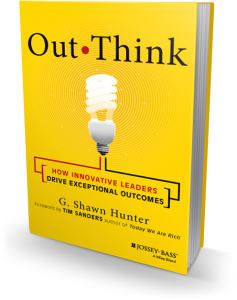Are you (or your boss) being poisoned by power?
Deborah Gruenfeld is a professor of Organizational Behavior at Stanford. For years, she and her colleagues have been studying the effects of power – particularly the effect of power disparities in the workplace.
In one small, but powerful, example of her work, they brought together students in groups of three. Of the three students, one was chosen randomly to be the boss, the decider. The other two were asked to create competing solutions to various issues on campus – issues such as making the campus more environmentally friendly, or improving transportation and cafeteria services. The task itself was a distraction. What the researchers were most interested in was the role of power newly bestowed to one of the students.
During the session in which the “boss” is asked to evaluate the quality of the proposals from each of the two other students, the researchers bring in a plate of five cookies. After they each take a cookie, there’s two left. Every culture is aware of the social taboo against taking the last cookie so the cookie that the researchers are watching is the fourth cookie.
Consistently, the newly appointed “boss” was much more likely to take the fourth cookie, and to exhibit “disinhibited eating.” In other words, chewing with their mouth open and leaving more crumbs.
It’s an amusing story, but goes right to the point of what Gruenfeld calls the Power Poisoning Effect. That is, often those newly placed into power tend to:
• Give greater value to their own ideas and initiatives
• Give lesser value to the ideas and initiatives of those around them
• Think that the rules don’t apply to them
• Have greater difficulty controlling their own impulses
High-power individuals talk more, interrupt more, are more likely to speak out of turn, and are more directive of others’ verbal contributions than are low-power individuals.
– Deborah Gruenfeld
Does this remind you of any politicians or executives in the news headlines?
In a similar study about the intoxicating effects of unchecked wealth, professor Paul Piff and his graduate students discovered that people who drove fancy, expensive cars were far more unlikely to yeild to pedestrians at a crosswalk.
Paul and his students monitored hundreds of vehicles over many days, and recorded whether or not they yielded to pedestrians in a crosswalk. Fifty percent of those vehicles classified in the most expensive category (BMWs, Mercedes, Porsche, etc.) failed to yield, while meanwhile none of the vehicles classified in the most inexpensive category broke the law at the crosswalk.
This is not to say that universally only rich people are prone to break small laws, but rather Paul concluded in his research that we all have competing motivations throughout our days. In fact, it’s not wealth alone that prompts individuals to believe they are above the law, but rather the power disparity between themselves and those around them.
Power disparities in the workplace have been directly correlated with workplace bullying, pay inequities, and even sexual harassment.
Small psychological interventions, small changes to people’s values, small nudges in certain directions, can restore levels of egalitarianism and empathy.
– Paul Piff, Professor UC Berkeley
Paul suggests that little, but consistent, prompts, and positive social cues, can make a big difference.
He and his colleagues have discovered that small interventions such as showing a short video depicting childhood poverty reminds us of the existence of social inequity in the world and restores empathetic behavior.
- Join my Email updates for regular updates on leadership and life
____________________________________________________

Twitter: @gshunter
Say hello: email@gshunter.com
Web: www.shawnhunter.com




